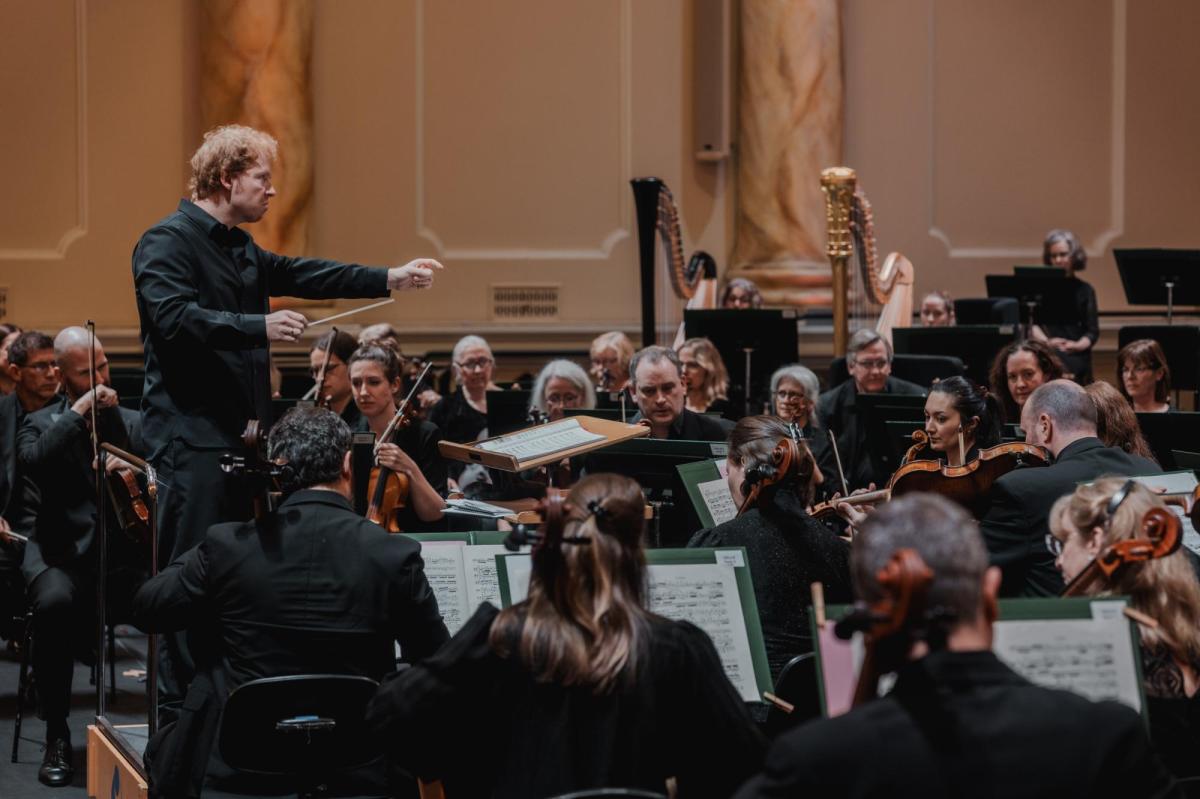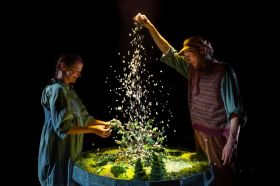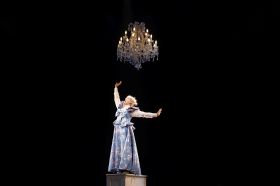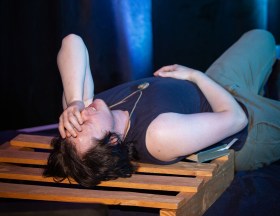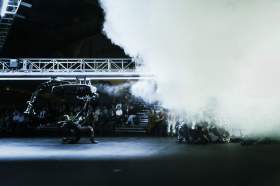Fearless was the latest in the Adelaide Symphony Orchestra’s flagship symphony series, and it juxtaposed two well-known musical settings of Lord Byron’s epic Gothic poem ‘Manfred’. In the poem, the protagonist (Manfred) confronts his unspeakable failings and seeks to reconcile himself with the natural order of things as best he can, by forgetting – but he doesn’t succeed. Byron wrote the poem very soon after fleeing society following the fallout from his incestuous affair with his half-sister. Manfred’s failing might also have been an “unspeakable love”, but it’s moot.
Guest conductor Dmitry Matvienko took a blistering pace with Robert Schumann’s overture Manfred (Op.115). Following the tutti explosion of sound at the beginning of the work, Matvienko insisted on a hard-hitting attack from the orchestra, and his incisive gesturing left no doubt in anyone’s mind – audience and musician alike – that he had a tempo and dynamic plan and would brook nothing else.
Schumann’s music is inspirational and in it we sense Byron’s tormented protagonist wrestling with his conscience as he grimly and almost heroically faces the challenges that the world throws at him. But Manfred is a tragic figure, and Schumann’s music exposes that. It’s stirring.
Tchaikovsky’s symphony Manfred (Op.58) is not one of his six numbered symphonies. He wrote it sometime between writing his fourth and fifth symphonies and arguably it lays down some of the lyrical content of his famous Symphony No.6 Pathétique. Through the concert, from one composition to the next, the orchestra grew as more instruments were added.
For Tchaikovsky’s Manfred, which concluded the program, the Adelaide Town Hall stage was full to almost overflowing, and even the magnificent Walker and Sons pipe organ was included.
The composition is larger than life: it is substantial in duration and rivals the length of a Mahler symphony. The orchestration is lush, with rampant melodies of diverse styles variously championed by almost every section of the orchestra. The mood and tenor are changeable, and it forces the mind to constantly adapt and adjust. Listeners may feel as if they are with Manfred as he assesses his life and tries to move forward. The composition has sweeping momentum, gravitas, jubilation, reverence and a touch of the absurd as well, and it seems as if the Pathétique is not far from Tchaikovsky’s mind.
For this performance, every section of the orchestra was at the top of its game, and the brass, horns, woodwinds and percussion were electrifying. The pipe organ, when it entered late in the fourth movement, was spine tingling.
Matvienko’s reading of Tchaikovsky’s Manfred was as good as it gets – visually and aurally exciting.
The program also included the Australian premiere performance of Croatian composer Dora Pejačević’s Phantasie Concertante for Piano and Orchestra in D minor, Op.48. Performed by Australian pianist Tamara-Anna Cislowska in her debut with the Adelaide Symphony, it was a single movement of exuberance and virtuosity.
From its opening timpani rolls and crash of cymbals, the piece explores tonality and dissonance in a rhapsodic explosion both at the piano and throughout the orchestra.
Like the two Manfreds, the stormy Phantasie Concertante also felt like a journey peppered with obstacles and resolutions, but ultimately did not resolve. Cislowska surely felt this as she fearlessly worked to tame the dense extended piano solo with its crashing chords, gentle melodies and rousing flourishes.
Read: Musical review: Six, Comedy Theatre
The audience was generous with its final applause at the end of the evening, and fearless, almost, is how we felt when we departed.
Symphony Series 5 – Fearless was performed at the Adelaide Town Hall 9-10 August 2024.
Adelaide Symphony Orchestra with conductor Dmitry Matvienko and soloist Tamara-Anna Cislowska.

